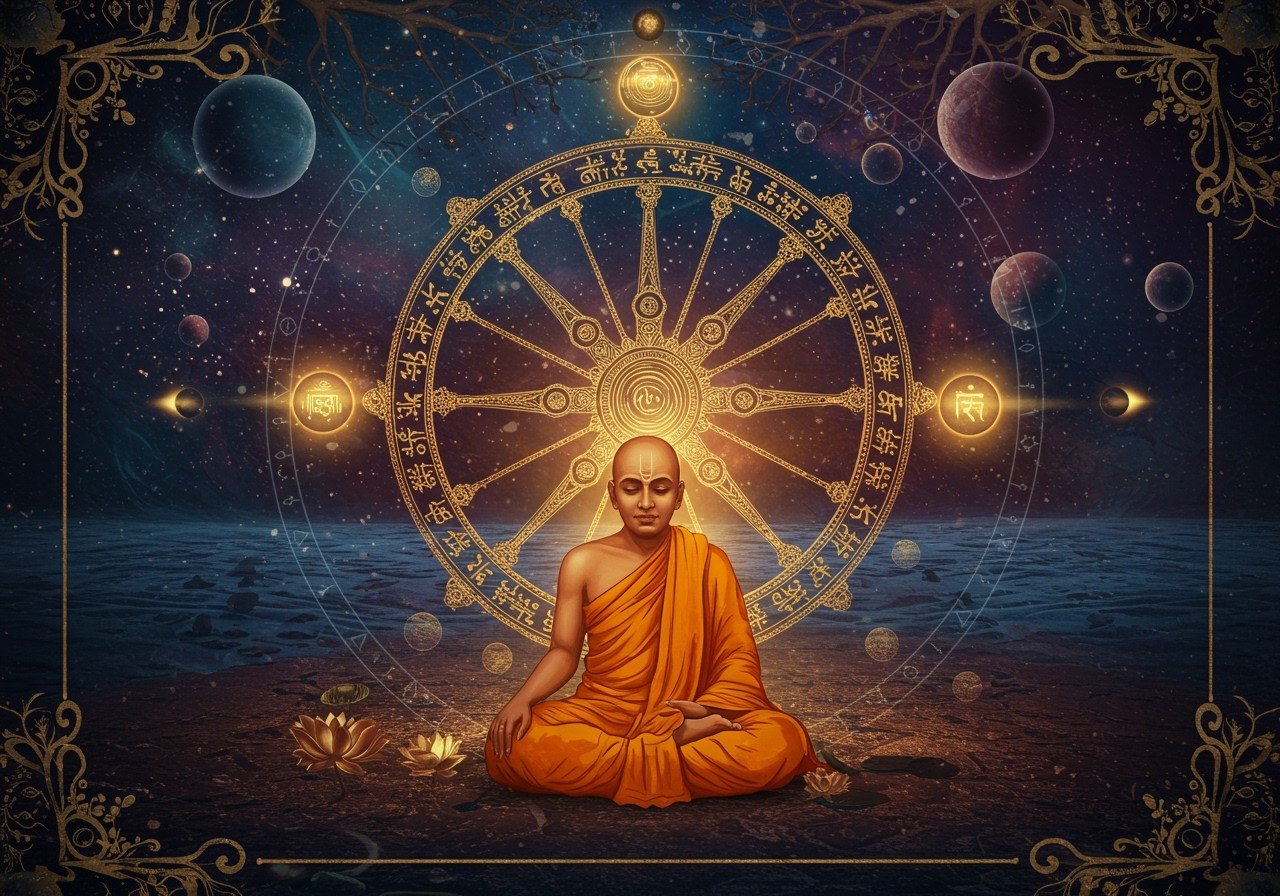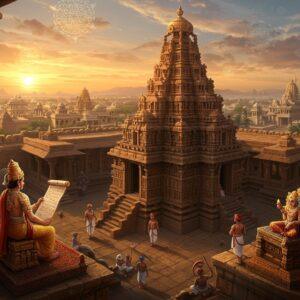
The Ajivika sect, founded by Makkhali Gosala in the 5th century BCE, stands as a unique chapter in India’s rich spiritual history. Coexisting with prominent traditions like Buddhism and Jainism, this ascetic group held a distinct worldview centered around determinism, asceticism, and a complete rejection of free will and karma. Though the sect faded away by the 14th century CE, its influence on Indian thought, especially its concept of predetermined fate, remains a subject of scholarly interest.
Core Beliefs of the Ajivikas
The Ajivika philosophy distinguishes itself through its core tenets:
- Determinism (Niyati): Ajivikas believed that fate (Niyati) governs everything. Every event, every action, is preordained and unchangeable, leaving no room for human influence on outcomes. This contrasts sharply with belief systems that emphasize free will and the power of individual choices.
- Rejection of Free Will and Karma: Unlike Jains and Buddhists who emphasize the impact of karma on future lives, Ajivikas completely rejected both free will and karmic consequences. They were strict fatalists, convinced that a pre-set cosmic order dictates all events.
- Materialistic Soul (Atman): Ajivikas believed in a material soul that transmigrates through fixed cycles of rebirth until reaching a predestined state of liberation. This concept differentiates them from other schools of thought that see the soul as immaterial.
- Atheism: The Ajivika sect largely rejected the idea of a creator god and emphasized the mechanistic unfolding of the universe governed by fate. While there’s some evidence of devotional practices in some Ajivika circles, the sect is primarily considered atheistic. This rejection of divine intervention further reinforces their deterministic worldview.
- Cycle of Rebirth: Ajivikas believed in a cyclical process of rebirth, but unlike other traditions, they saw it as a predetermined journey, independent of karmic actions. Liberation from this cycle was, therefore, not achieved through moral actions but was rather a preordained event in the soul’s cosmic journey.
Ajivika Practices: A Life of Asceticism
The Ajivikas’ practices mirrored their beliefs, characterized by rigorous asceticism:
- Asceticism: Similar to Jains, Ajivikas practiced extreme forms of self-denial. Fasting, enduring physical discomfort, and exposure to the elements were common practices aimed at achieving spiritual liberation.
- Nudity: Some Ajivika adherents, including Makkhali Gosala, practiced nudity as a symbol of detachment from worldly possessions and societal norms. This further exemplified their commitment to a minimalist existence.
- Wandering Lifestyle: Ajivika ascetics lived itinerant lives, wandering from place to place without a permanent home. This symbolized their detachment from worldly possessions and societal structures. Their wandering lifestyle also reinforced their reliance on alms for sustenance.
- Rejection of the Caste System: In line with other ascetic groups, Ajivikas strongly opposed the caste system prevalent in Indian society. This reflected their emphasis on equality and the inherent worth of every individual.
- Severe Austerities: Their commitment to asceticism extended to extreme austerities, including lying on beds of nails, walking through fire, and enduring extreme weather conditions. These practices served as a testament to their strength of conviction and their belief in the predetermined nature of their spiritual journey.
- Other Disciplines: Some Ajivikas also practiced less common rituals, such as consuming cow urine, further illustrating the diverse and sometimes extreme nature of their spiritual practices.
Ajivika’s Historical Footprint and Decline
The Ajivika sect saw its peak during the reign of the Mauryan Emperor Bindusara. Emperor Ashoka also initially patronized the sect before shifting his support to Buddhism. Physical remnants of the Ajivikas can be found in the Barabar Caves of Bihar, which served as meditation retreats for Ajivika monks. Want to delve deeper into ancient philosophies? Explore spiritual significance and history at Siddhivinayak Temple.
Several factors contributed to the decline of the Ajivikas. The rising popularity of Buddhism and Jainism, combined with criticism from other religious groups and the esoteric nature of their doctrines, led to the sect’s gradual disappearance by the 14th century.
Ajivika’s Enduring Legacy
Despite its disappearance, the Ajivika sect left a lasting impact on Indian thought, especially with its unique doctrine of determinism. Their deterministic view of life provides a unique perspective on the interplay of fate and free will, continuing to spark interest among scholars and spiritual seekers alike. Explore more about Hindu beliefs and practices on Exploring Hinduism: Core Beliefs and Practices.
Enhance Your Spiritual Journey with Poojn.in
For those seeking to enrich their spiritual practices, Poojn.in offers a wide array of products. Find items like meditation cushions, ritual vessels, incense, and more. Create a serene atmosphere for reflection and contemplation with our carefully curated selection. Visit Poojn.in today! Need specific puja items? Mahosadhi is available now.


